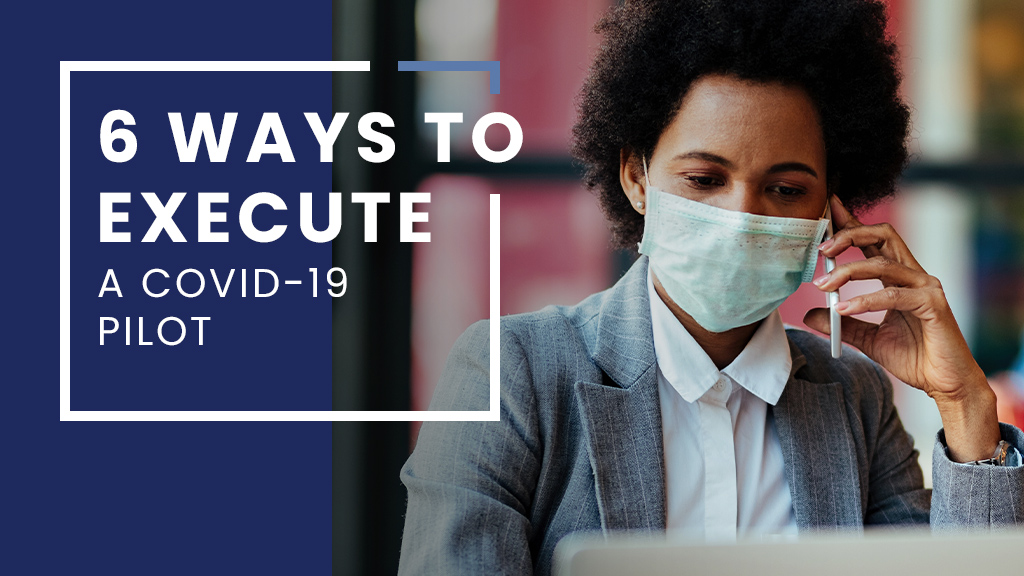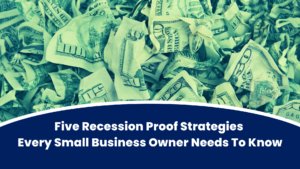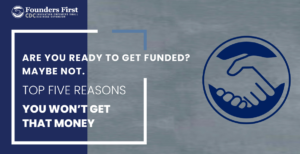Being able to adapt in the COVID-19 environment could make or break your business. The power of the pivot has never been more important.
Surviving in the COVID-19 business environment takes a lot of fortitude and a little creative thinking. Doing things the same way you always did them may not work at all — in fact it might put you out of business. Being able to pivot, however, might not only help you survive — it might just help you thrive.
Recently we held a panel with leaders of three businesses that successfully pivoted and created new offerings to serve customers in the face of COVID-19: Romy Antoine of One Stop Wellness, Linda Amaro of Klarinet Solutions, and Francisco DeJesus of Universal. Each has a unique business with unique solutions. You can listen to the full webinar for more on our Events page.
Here are six principles to practice to execute a COVID-19 pivot:
1. Be open and willing to take action
We can all sit around talking about doing something forever. But the best intentions mean nothing if you don’t have a plan and execute on it.
At Klarinet Solutions, Linda Amaro’s goal over the last 10 years has been to help businesses create and manage distributed workforces and virtual employees. But when COVID-19 hit, she pivoted from bigger, broader corporate solutions to smaller, lighter solutions that just helped her clients get up and running and work from home more easily. But even her team missed the “water cooler” effect of sharing ideas. They took action to remedy that with new, virtual solutions that promoted ideation.
2. Analyze and study behaviors of customers
Any kind of design thinking or product development starts with customers. What do they want? What do they need? What are they willing to pay for? What problems do they have that you can solve? When you study your customers, it’s critical that you not only listen to what they say but watch what they do — the latter is more important.
These days people are tightening their belts and only spending money on goods and services they deem essential, so you have to create essential products and services. One way we talk about that at Founders First is by saying you’re either a vitamin, a vaccine, or a cure for cancer. People would pay anything for a cure for cancer. Vaccines are good too, but people can live without them. What kind of product can you create that your customer can’t live without?
3. Help customers make money, save money, or reduce costs
When we’re in an economic downturn or recession, you have to serve your customers’ most basic needs. Usually they want to make money, save money, or reduce costs. You can also add convenience by saving time and reducing risks. What kind of ideas can you come up with that would help customers do any of those things? That’s where you’ll be able to generate more revenue.
4. Define success metrics
Before you test anything or launch any kind of new product or service, you have to know what success looks like. You need to define the metrics that will define your success — otherwise you’ll have no idea how you’re doing. Success could be more customers, more trials, more clicks, more members. Or it could simply be more revenues or profits. It’s however you define it within your business.
5. Be flexible and iterate
No one — almost no one — knocks it out of the park on the first try. You need to be flexible and iterate on your solution — again and again and again. The key is to get feedback from customers. Ask questions, do surveys, and use data to pinpoint the proper solution to move forward with. Let customers try your solution. Learn how it works or doesn’t work from them. Then either go back to the drawing board or incorporate the tweaks you need to make it successful. Remember, your customer is your partner in all of this.
At One Stop Wellness, Romy Antoine and his team iterated on a whole new COVID-19 feature that they added to their service, which tracks and monitors health risks in real time and communicates them to a doctor who designs a personalized wellness plan. The new COVID feature was so popular that they had to expand staff to meet demand.
6. Focus on great customer experiences and profitable outcomes
Usually a great customer experience will lead to a profitable outcome. At Universal, Francisco DeJesus used the company’s packaged goods resources to produce or purchase 23,000 face shields that they then donated to community hospitals.
If you can do something that helps both you and your clients make money, you will have found the sweet spot. Keep in mind that when you succeed others will follow. So you’ll have to keep iterating to stay ahead of the curve.
No matter what, keep your options open. While the coronavirus has been hard on everyone, when you dig deep enough you may find opportunities you didn’t know you had before.
Learn more about the art of the pivot: Listen to the full webinar from our events page.
Kim Folsom is the founder and CEO of Founder’s First Capital Partners, LLC and the FoundersFirstCDC nonprofit.




